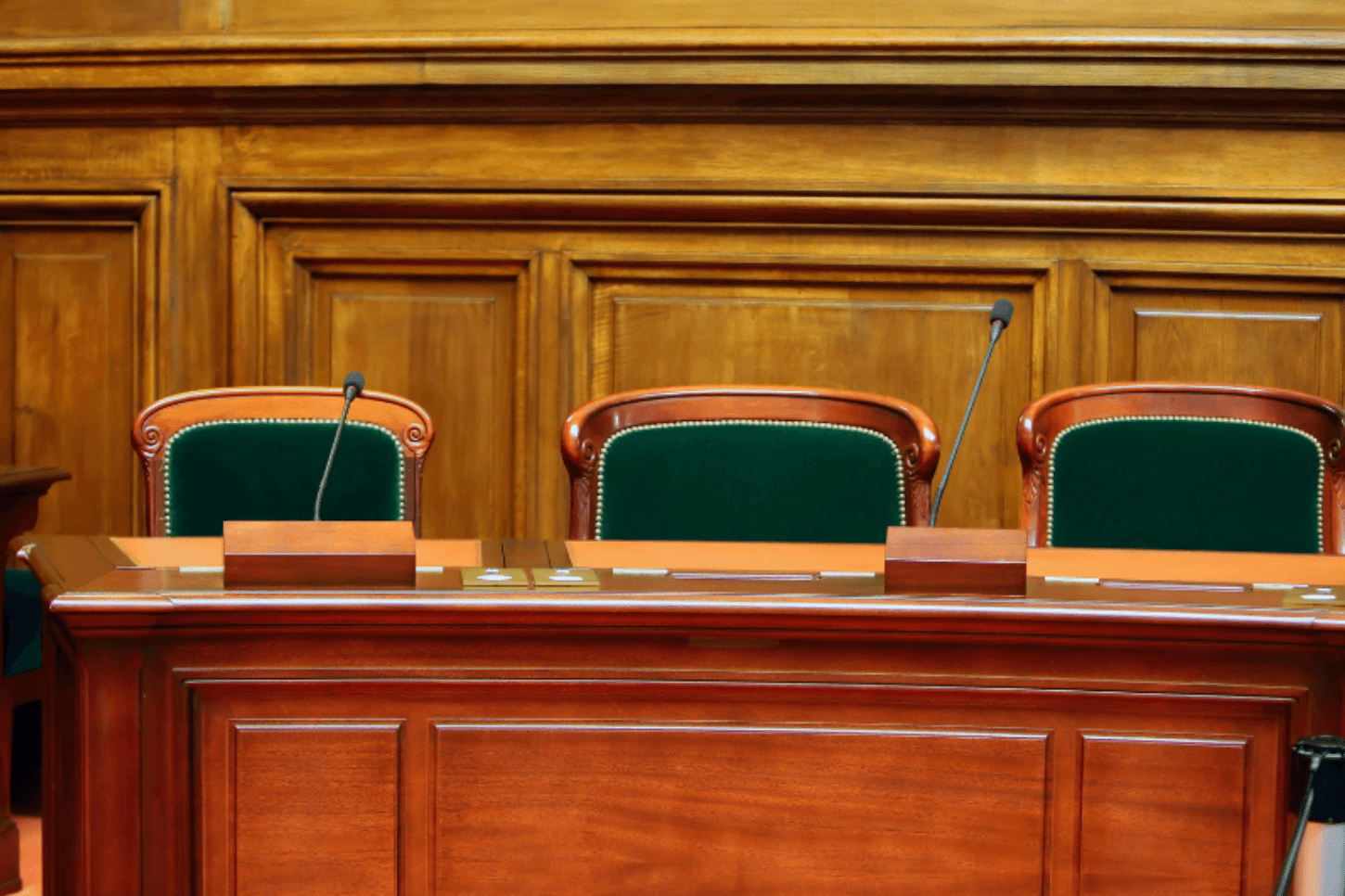
Pension Sharing On Divorce/Dissolution Of Civil Partnerships In England & Wales
14th May 2024
Pensions, alongside property, are some of the most valuable assets within a marriage or civil partnership. Despite this, statistics show a concerning trend: the number of applications for Pension Sharing Orders, which instruct pension providers to divide pension funds between parties, has decreased by 35% since 2017. This decline underscores the need for couples to carefully consider pension sharing agreements during divorce or dissolution proceedings to avoid potential financial hardship in retirement.
**
How do we share pensions on divorce?**
Every pension that you, and your partner has, will be valued irrespective of whether any part of the pension provision accrued (built up) before the start of the relationship or marriage. The value will then be considered, together with other assets, such as your home and any other property, savings or investments.
There may be arguments to consider hiving off parts of the value of the pension, based on the fact that they built up prior to the start of the relationship. I will discuss more of this concept later in this article.
The usual process in financial remedy cases involves considering an equal split of assets between the parties to a relationship. However, there are several reasons why this approach may not be fair or reasonable. Every financial settlement is bespoke to recognise that all relationships are unique. The treatment of pensions will vary from case to case. Some people may choose to retain assets in the form of real property (for example, a house) rather than receive a share of their spouse’s pension.
Legal options for pension sharing
It is possible to deal with pension sharing in three ways: -
- Pension Sharing Orders : These orders transfer a percentage of one partner's pension into the other's name, ensuring immediate access to shared pension funds.
- Pension Attachment Orders : This less common approach earmarks pension benefits for the other partner's future benefit. This is no longer popular option for a number of reasons, including the fact that one spouse must wait for their ex-spouse to retire or choose to start their benefits before they can share in them.
- Pension Offsetting : Offsetting involves trading pension assets for other assets, like property, with their values being carefully calculated to ensure fairness. Offsetting is not straightforward and should be approached with caution. It is worthy of note that the value of a pension provided by the pension provider may not reflect the true value of the benefits to the parties.How do we calculate the value of pensions?
Pensions are evaluated based on their Cash Equivalent Transfer Value (CETV or CEV), which indicates the fund's cash worth. However, this figure often oversimplifies the true value of pension benefits. To accurately assess pension values, it's advisable to consult a Pension on Divorce Expert (PODE) such as an actuary.
Do we need to instruct a Pensions On Divorce Expert?
If combined pensions are valued at more than £100,000.00 it is usually very sensible to instruct an expert to value pensions, in terms of their equivalent cash value and the value of the associated benefits.
There are various types of pensions. Some schemes have a defined benefit, and some are based on the cash contributions made to the fund.
The PODE will be able to compare the different types of pensions and provide calculations to be used by your legal advisors for pension sharing and offsetting. Public sector pensions (Police, NHS, Civil Service, Armed Forces) need very careful consideration due to their complexities.
When do I receive my pension share?
When a pension is divided, each person gets their own "pot" they can access when they want, following the pension rules. Some pension plans let you stay in their system (internal transfer), while others don't (external transfer). For external transfers, it may be useful to consult a Financial Advisor because you'll need to find a new pension fund to receive your pension credit.
Is it possible to share the State Pension?
You can't split the State Pension. But it's crucial to know how much you'll get from it by getting a forecast, because missing contributions can lower your pay-out. For instance, if you had a career break (for example to spend time with your children), your State Pension might be less. The Pension on Divorce Expert (PODE) can work out how to adjust other pensions to balance out the incomes, considering these factors.
Splitting pensions
We are often asked if the pension built up before marriage is included in calculating pension shares. The starting point for the Court is the total value of the pensions.
If one party to a relationship has significant pre-marital pension, then there may be some ability to argue that this part of the pension should be “ringfenced” and not shared between the parties on divorce/dissolution. However, the success or otherwise of this approach depends on the resources available to the other party and their needs in retirement.
If the entire value of the pension is required to satisfy “needs,” the Court will not accept an apportionment argument.
The Court will also consider the length of the marriage, including pre-marital cohabitation.
Key considerations and practical steps
Before proceeding with pension sharing arrangements, it's essential to consider the following:
- Prior to meeting with your solicitors for the first time, prepare carefully. Make a list of all pension schemes in which you are a member and contact them to request the relevant CETV/CEV figures. It is possible to use a special document, a Form P to find out information about any pension scheme of which someone is a member. It is also important to scrutinise pension entitlements. For example, some schemes will have death benefits or guaranteed annuities.
- If you have had several jobs, each with pension schemes, you may search for any lost pensions if you are not sure about the pensions held by you.
- If you do choose to instruct a Pension on Divorce Expert, please ensure that all instructions to the expert are detailed. The PODE should be informed of any serious health conditions. Impaired life expectancy needs to be reflected in a PODE’s calculation but minor health conditions, or those that may improve, should not normally be reported.
- A Pension Sharing Order (PSO) must provide for sharing by a percentage of the pension, not a fixed amount. You will also need to agree on who will pay any charges due to the pension provider, on the transfer. These may be significant.
- A Pension Sharing Order only comes into effect on the later of the granting of a Final Order of divorce or 28 days from the PSO. Careful consideration must be given whether to delay applying for a Final Order (previously Decree Absolute) until 28 days from the date of the PSO. If a Final Order is granted beforehand, a party may lose out in pension terms if their spouse dies after the Final Order has been granted and before the PSO can take effect.
- However, bear in mind that a PSO will be implemented by the pension provider after that date. They have a four-month window so to do.
- PSOs are not available on variation applications relating to Divorce Petitions issued before 1st December 2000. In addition, as a general rule, a PSO cannot be made twice against the same pension from the same marriage. However, on a capitalisation application, a PSO may potentially be made against the same pension from the same marriage which has previously been subject to a PSO.
- Remember to include State Pension entitlements, including State Pension, additional State Pension and the CE valuation of additional State Pension or protective payment. Full details of State Pension entitlements may be obtained by completing an on-line request with the Department for Work and Pensions. Use forms BR19 and BR20. It is important to ensure that the other party takes the same steps.
The role of a Financial Advisor
Your solicitors might get in touch with your Financial Advisor to discuss options with you. Getting advice early can help you plan for retirement and prepare your case.
If your pension is being reduced, it's important to get advice to understand how it affects your retirement income. A Financial Advisor can also suggest ways to improve your pension benefits in the future.
Financial Advisors can also help with other settlement aspects like taxes, savings, investments, and managing your money. If you don't have a trusted Financial Advisor, your solicitors can recommend one.
At MSB Solicitors, our Family Law Team can provide practical financial advice. We're experienced in dealing with pensions and can give you clear guidance to make informed decisions. If you have any questions, feel free to contact:
- Diane Matthews, Senior Associate – DianeMatthews@msbsolicitors.co.uk. Diane specialises in divorce, Financial Remedy applications, and children matters, based in our Liverpool office.
- John Owens, Partner – JohnOwens@msbsolicitors.co.uk. John handles divorce, Financial Remedy applications, pre and post-nuptial agreements, and cohabitation disputes, based in our Manchester office.
















